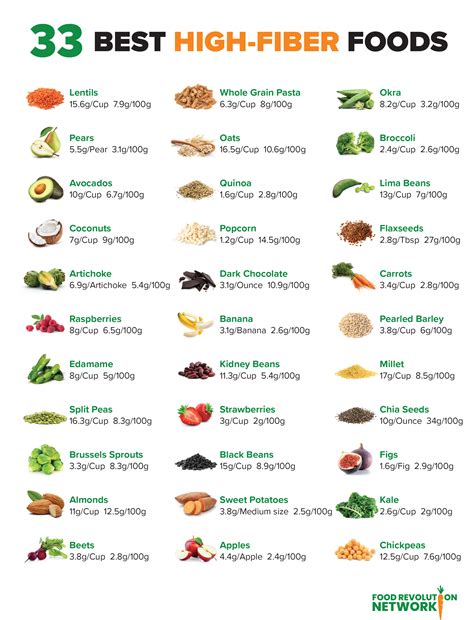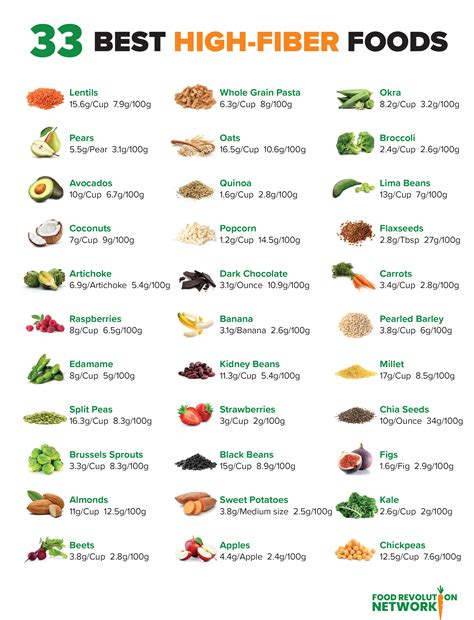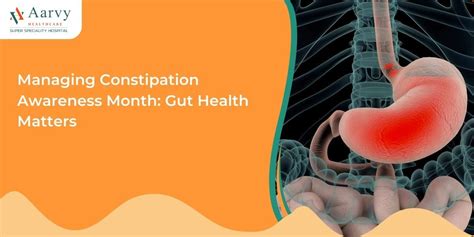Intro
Fiber-rich foods alleviate constipation symptoms. Discover high-fiber foods, constipation relief, and digestive health benefits with whole grains, fruits, and veggies.
Constipation is a common issue that affects millions of people worldwide, causing discomfort, bloating, and digestive problems. One of the most effective ways to prevent and manage constipation is by incorporating high-fiber foods into your diet. Fiber plays a crucial role in maintaining a healthy digestive system, promoting regular bowel movements, and preventing constipation. In this article, we will delve into the importance of fiber-rich foods, their benefits, and provide a comprehensive list of high-fiber foods that can help alleviate constipation.
A diet rich in fiber can help soften stool, increase stool bulk, and promote regular bowel movements, making it easier to pass stool and reducing the risk of constipation. Fiber also helps to feed the good bacteria in the gut, promoting a healthy gut microbiome. A healthy gut microbiome is essential for maintaining a strong immune system, producing vitamins, and regulating inflammation. Moreover, a high-fiber diet has been shown to reduce the risk of chronic diseases, such as heart disease, diabetes, and certain types of cancer.
The daily recommended intake of fiber varies from person to person, but the general consensus is that adults should consume at least 25-30 grams of fiber per day. Unfortunately, many people do not meet this daily requirement, leading to constipation, digestive problems, and other health issues. By incorporating high-fiber foods into your diet, you can help prevent constipation, promote regular bowel movements, and maintain a healthy digestive system.
Fiber-Rich Foods For Constipation

Fiber-rich foods are abundant and can be easily incorporated into your diet. Here are some of the highest fiber-rich foods that can help alleviate constipation:
- Legumes: Legumes, such as beans, lentils, and peas, are some of the richest sources of fiber. They are also rich in protein, vitamins, and minerals, making them a nutritious addition to your diet.
- Whole grains: Whole grains, such as brown rice, quinoa, and whole-wheat bread, are rich in fiber and can help promote regular bowel movements.
- Fruits: Fruits, such as apples, bananas, and berries, are rich in fiber and can help soften stool and promote regular bowel movements.
- Vegetables: Vegetables, such as broccoli, carrots, and Brussels sprouts, are rich in fiber and can help promote regular bowel movements and prevent constipation.
Benefits Of High-Fiber Foods
High-fiber foods offer numerous benefits, including: * Promoting regular bowel movements * Preventing constipation * Reducing the risk of chronic diseases, such as heart disease and diabetes * Supporting healthy weight management * Promoting a healthy gut microbiomeHow Fiber Helps With Constipation

Fiber helps with constipation in several ways:
- Increasing stool bulk: Fiber helps increase the bulk of stool, making it easier to pass and reducing the risk of constipation.
- Softening stool: Fiber helps soften stool, making it easier to pass and reducing the risk of straining during bowel movements.
- Promoting regular bowel movements: Fiber helps promote regular bowel movements, reducing the risk of constipation and promoting a healthy digestive system.
Types Of Fiber
There are two types of fiber: soluble and insoluble. Soluble fiber dissolves in water and forms a gel-like substance, while insoluble fiber does not dissolve in water and helps add bulk to stool. Both types of fiber are essential for maintaining a healthy digestive system and preventing constipation.Incorporating Fiber-Rich Foods Into Your Diet

Incorporating fiber-rich foods into your diet can be easy and delicious. Here are some tips to help you get started:
- Start your day with a high-fiber breakfast, such as oatmeal with fruit and nuts.
- Snack on high-fiber foods, such as fruits and vegetables.
- Incorporate legumes into your meals, such as lentil soup or chili.
- Choose whole grains over refined grains, such as brown rice instead of white rice.
High-Fiber Food List
Here is a comprehensive list of high-fiber foods that can help alleviate constipation: * Legumes: beans, lentils, peas * Whole grains: brown rice, quinoa, whole-wheat bread * Fruits: apples, bananas, berries * Vegetables: broccoli, carrots, Brussels sprouts * Nuts and seeds: almonds, chia seeds, flaxseedsManaging Constipation With Fiber

Managing constipation with fiber requires patience, persistence, and a commitment to a high-fiber diet. Here are some tips to help you manage constipation with fiber:
- Increase your fiber intake gradually to allow your digestive system to adjust.
- Drink plenty of water to help fiber move through your digestive system.
- Exercise regularly to help stimulate bowel movements.
- Manage stress, as stress can exacerbate constipation.
Common Mistakes To Avoid
When incorporating fiber-rich foods into your diet, there are common mistakes to avoid: * Increasing fiber intake too quickly, which can cause digestive discomfort. * Not drinking enough water, which can cause fiber to become stuck in the digestive system. * Not exercising regularly, which can reduce bowel movements and exacerbate constipation.Conclusion And Final Thoughts

In conclusion, incorporating high-fiber foods into your diet can help alleviate constipation, promote regular bowel movements, and maintain a healthy digestive system. By understanding the benefits of fiber-rich foods, incorporating them into your diet, and avoiding common mistakes, you can take the first step towards a healthier, happier you. Remember to increase your fiber intake gradually, drink plenty of water, and exercise regularly to help manage constipation and promote overall health and well-being.
We encourage you to share your experiences with fiber-rich foods and constipation in the comments below. Have you found that incorporating high-fiber foods into your diet has helped alleviate constipation? What are your favorite high-fiber foods? Share your thoughts and help others who may be struggling with constipation.
What is the daily recommended intake of fiber?
+The daily recommended intake of fiber varies from person to person, but the general consensus is that adults should consume at least 25-30 grams of fiber per day.
How can I incorporate more fiber into my diet?
+You can incorporate more fiber into your diet by eating more fruits, vegetables, whole grains, and legumes. You can also try adding fiber supplements to your diet, but it's always best to get your fiber from whole foods.
Can fiber help with constipation?
+Yes, fiber can help with constipation. Fiber helps increase the bulk of stool, soften stool, and promote regular bowel movements, making it easier to pass stool and reducing the risk of constipation.
What are some high-fiber foods that can help alleviate constipation?
+Some high-fiber foods that can help alleviate constipation include legumes, whole grains, fruits, and vegetables. Some examples include beans, lentils, brown rice, quinoa, apples, bananas, and broccoli.
How long does it take to see the benefits of a high-fiber diet?
+The benefits of a high-fiber diet can be seen within a few days to a few weeks. It's essential to be patient and consistent with your high-fiber diet to see the benefits and to allow your digestive system to adjust.
